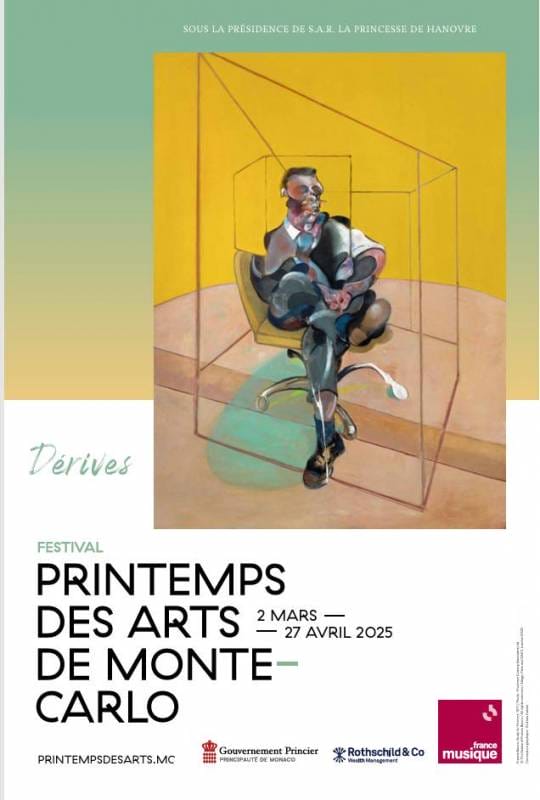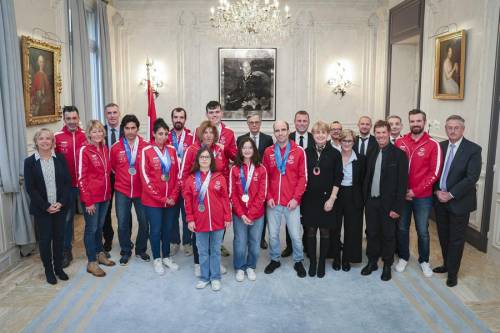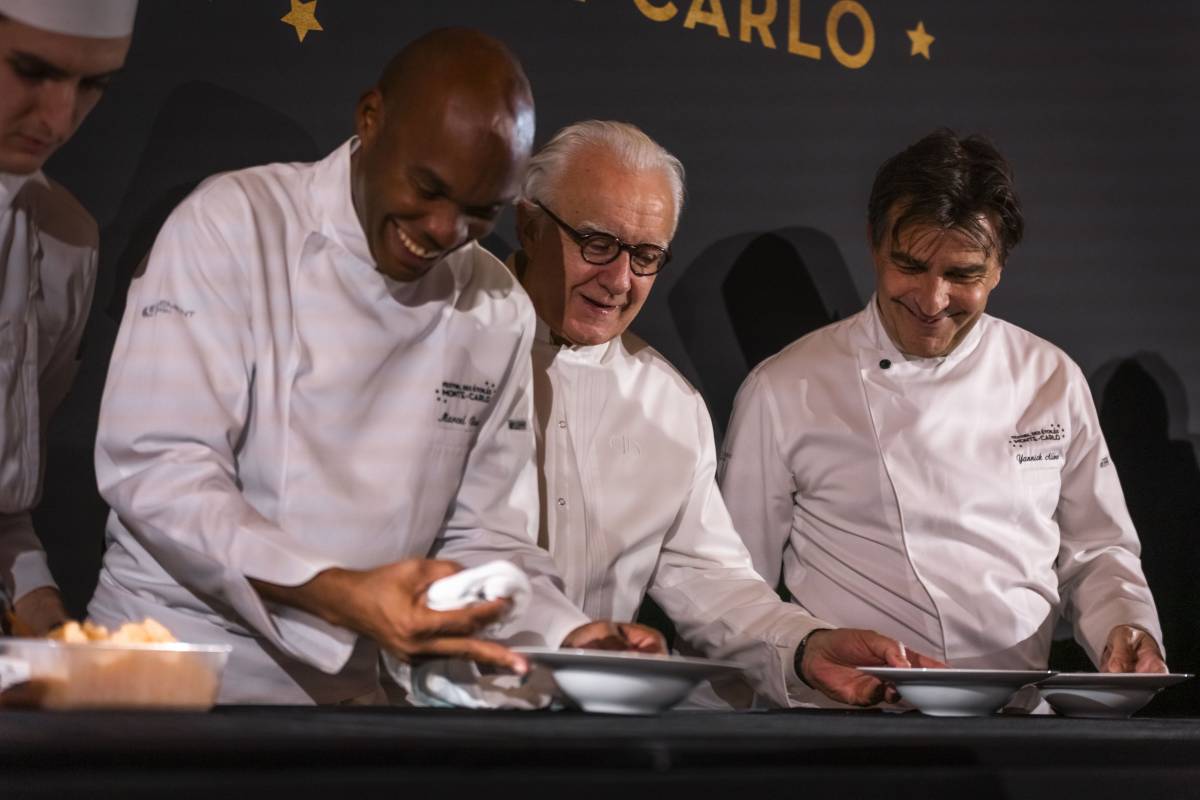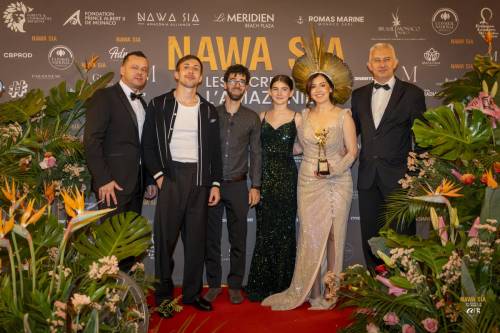The Festival programme includes an impressive selection of some 25 concerts, theatrical and poetic performances as well as musical strolls of the Francis Bacon Art Foundation.
If there were any artist perfectly fitting the spirit of the Printemps des Arts held in Monte-Carlo until April 27, it is definitely Pierre Boulez. An extraordinary personality, a charismatic man, a genius musician for sure, but also an author and an avid reader, poet, lover of painting, curious about art in all its forms and styles. A man on the go, who spoke loudly, swiftly and sharply, constantly running after time, reluctant for a compromise and solid in friendship. Like many other brilliant people, Pierre Boulez loved speed. The interpretation of his works therefore requires a virtuoso performance and spirit alike. Doesn’t his famous piano Sonata No. 2 start with the extremely fast “presto prestissimo”..?
Bruno Mantovani, conductor, composer and the Festival artistic director is offering us a “360-degree Pierre Boulez portrait” (see the interview below). “I am building the festival same as I would build a work of art. To understand it all, you have to be there from the first to the very last concert!”. That’s what he told us on the sidelines, at the Princess Grace Theatre presentation attended by the Festival’s president, Princess of Hanover.
That presentation had been a show of its own, with the actor Alain Carré reciting Stéphane Mallarmé and Henri Michaux, Ravel and Debussy piano and violin performances and film excerpts. Enough to make our mouths water! This is also an opportunity to discover how radical Pierre Boulez had been in his choices, but also how astonishing in his open-mindedness and intellectual curiosity. Turned towards pure creation, driven by the desire to write a new musical lexicon, he was a student of Olivier Messiaen. Reading one of his scores, the latter once commented: “It’s a good piece of work but with a bit too much originality”. He said it all. A new era was about to start. The Printemps des Arts, aptly entitled “Dérives”, is thus offering crossings and new paths to interpret his innovative work. According to the Princess of Hanover, the audience is invited to take “a journey across a number of his artistic paths, delivering ourselves to their twists and turns”.
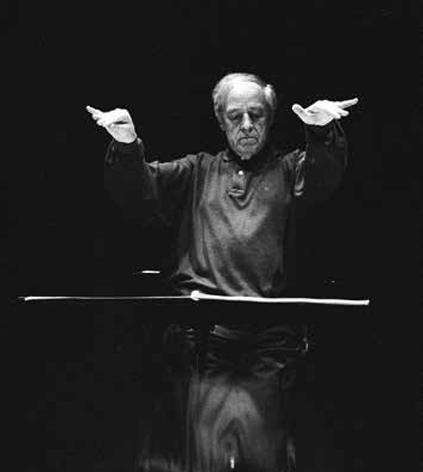
Bruno Mantovani: “There is something very sensual to Boulez’s music”
Bruno Mantovani, the Monte-Carlo Printemps des Arts Festival artistic director, kindly answered some of our questions.
Hello Monaco: Why did you choose Pierre Boulez for this new edition?
Bruno Mantovani: Boulez was sensitive to all forms of art. He had an incredible analytical power. He thus wrote a masterful book on Paul Klee. He had the ability to theorize in disciplines he was not specialized in. Gifted with a superior mind, he also had an astonishing vivacity.
HM: Where does the parallel with Francis Bacon come from?
BM: They knew each other, rubbing shoulders in Paris. Even though they were both very different, there was a mutual respect. Boulez was leading an almost monastic life whilst Bacon was making the most of it all. They certainly had fruitful exchanges… The Francis Bacon Foundation in Monaco inspired us to organize musical strolls around its premises…
HM: But can we say that Bacon was as innovative as Boulez?
BM: I think we must make a distinction between the radical nature of expression and ancestral values here. Boulez was not just breaking up from the world of before. He was conducting for Wagner, Debussy and even Monteverdi. He had a link with tradition, even if it meant breaking it to build up something new. The history of art is made up of these kind of ruptures that represent a heritage of its own. I would abstain from classifying modernity. Bacon, of course, was not a pure abstraction. Boulez certainly had traditional gestures to him too…
HM: What are the highlights of this edition?
BM: Originally, I did not intend to include Boulez’s music in the programme. It was somewhat provocative. On March 26, however, a big concert was held to celebrate the 100th anniversary of the musician’s birth. We also organized a jazz concert even though Boulez hated it. He clearly stated that this music was predictable, first getting excited, then calming down… I don’t share that opinion. An excellent pianist, Hervé Sellin, is thus building bridges between classical music and jazz, taking a well-deserved place in this festival.

HM: Is there poetry in the programme?
BM: Over the three evenings, recitation is held between the performances. It is to celebrate the connection Boulez had with certain poets. He was particularly loyal in friendship. He even went as far as being dishonest defending a rightly accused friend.
He didn’t like some of the composers we included in the programme. At the same time, he was really interested in people and very modest. He could be formidable, however, with those who were not to his liking.
HM: Do you remember your encounter with Pierre Boulez?
BM: The first time I saw Boulez, I was 20 years old. It was in Paris. The orchestra was tuning up. As soon as this small gentleman walked in, something happened. The very sound of instruments changed. At one point he looked at me. I felt the strength of his gaze. It was captivating…
HM: Did Boulez like gastronomy the same way you do?
BM: Not really. He enjoyed sauced dishes and pralines, but spending four hours at a table wasn’t his thing. Everything had to go fast for him. Boulez drove like a madman in his Mercedes coupé! He would walk so fast that you could never keep up. The concert we performed at the festival for his centenary (that I directed) is an illustration of this liveliness. It’s a real tunnel. Literally physically exhausting.
HM: In fact, Boulez could have been somebody else than a musician. He had so many strings to his bow…
BM: He had even studied higher mathematics… But Boulez’s work is not just combinatorial. There is something very sensual to it. It is perceived as soon as we go beyond the purely formal aspect. The filmed interviews screened as part of the festival help us understand the complexity of the subject. Boulez was truly an exceptional personality.
The Monte-Carlo Ballets as a closing note
A postlude worthy of this very premium festival is to be expected. The “Printemps des Arts” festival will thus close at the Grimaldi Forum with exceptional performances by the Monte-Carlo Ballets on April 23–27. A two-hour program is scheduled with the Monte-Carlo Philharmonic Orchestra conducted by Jesko Sirvend, with a piano performance by David Bismuth: the “Four Temperaments,” choreography by George Balanchine, music by Paul Hindemith; the “Wartime Elegy,” choreography by Alexei Ratmansky and Valentin Silvestrov to traditional Ukrainian music; the “Transfigured Night,” choreography by Marco Goecke, music by Arnold Schönberg.
A grandе finale indeed!



